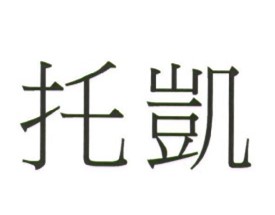Is it Possible to Use a Renowned Name of a Wine Region as a Trademark Designating Beverages Selling Service?
Date: 13 March 2024
【Volume 130】
World-famous European wines and spirits are mostly named after their grape varieties or places of origin. The former marks its flavor and the latter reveals its terroir, which is also the key factor for the consumers of whether to purchase the wine or not.
Registering wine region names as trademarks for wine products is in clear violation of the TRIPs Agreement, however, whether a Chinese translated name of wine origin such as “波爾多(Bordeaux)” or “勃根地(Burgundy)” that designates non -alcohol beverages is allowed to register as a trademark is still in dispute. According to 110 (2021) XingShangSuZi No. 19 Administrative Judgement, the Taiwan Intellectual Property Court (IP court) points out that this type of translation is nevertheless likely to give a false impression of the origin of being famous wine regions, which could mislead the consumers; consequently, the registration shall be refused.
Case Fact
Channg Ruey Trading Co., Ltd (the plaintiff), a Taiwanese wine and spirit importer, filed the application of trademark “托凱” in designated services of class 35 (retailing and wholesaling of beverages, alcohols, and foodstuffs) with Taiwan Intellectual Property Office (IPO) on December 25, 2014, and the application was granted.
| Trademark Specimen | Designated Services | |
|---|---|---|
| Contested Trademark |  |
Class 35 retailing and wholesaling of beverages; retailing and wholesaling of alcohols; retailing and wholesaling of foodstuffs. |
A third party claims that the contested trademark has violated the following provisions of the Taiwan Trademark Act for designating “retailing and wholesaling of beverage and alcohols”, and requested an invalidation against the contested trademark:
- Paragraph 1, Article 29 of the Taiwan Trademark Act: “A trademark shall not be registered if it is devoid of distinctiveness in any of the following: (1) consisting exclusively of a description of the quality, intended purpose, material, place of origin, or relevant characteristics of the designated goods or services; (2) consisting exclusively of the generic mark or term for the designated goods or services;” and,
- Paragraph 1, Article 30 of the Taiwan Trademark Act: “A trademark shall not be registered in any of the following: (8) being likely to mislead the public as to the nature, quality, or place of origin of the goods or services; (9) being identical with or similar to a geographical indication for wines or spirits in the ROC or a foreign country, and being designated to goods that are identical with or similar to wines or spirits, where that foreign country concludes with the ROC an agreement, or accedes to an international treaty, to which the ROC also accedes, or has reciprocal recognition with the ROC of protection of geographical indications for wines or spirits;”.
Through examination, IPO believes that the designated services “retailing and wholesaling of beverage and alcohols” of the contested trademark should be invalidated.
The plaintiff filed an administrative appeal regarding the said invalidation but was rejected by the Ministry of Economic Affairs, and thus filed an administrative suit with the IP court.
Summary of the Taiwan IP Court Interlocutory Judgment
The following judgement was made by the IP court after the trial:
1. Relevant consumers or providers of the alcohols market have regarded the contested trademark as the Chinese translation of the wine region “Tokaj/Tokaji”
(1) “Tokaj/Tokaji” is the name of a wine region in Hungary, which is a registered geographical indication under the EU’s protection in 2006. According to multiple internet articles and published books issued before the registration date of the contested trademark, there are indeed people who interpret “Tokaj” as “托凱”.
(2) In practice, Taiwanese consumers or providers do interpret names from their foreign pronunciation to Chinese characters accordingly in literal translation. Consequently, relevant consumers and providers took “托凱” as one of the Chinese translated names of “Tokaj/Tokaji” for its similar pronunciation.
2. The contested trademark, designated in services related to “retailing and wholesaling of beverage and alcohols”, violates the Taiwan Trademark Act
(1) “Tokaj/Tokaji” is the name of a wine region in Hungary, which is a registered geographical indication under the EU’s protection in 2006. According to multiple internet articles and published books issued before the registration date of the contested trademark, there are indeed people who interpret “Tokaj” as “托凱”.
(2) In practice, Taiwanese consumers or providers do interpret names from their foreign pronunciation to Chinese characters accordingly in literal translation. Consequently, relevant consumers and providers took “托凱” as one of the Chinese translated names of “Tokaj/Tokaji” for its similar pronunciation.
In conclusion, the IP court formed the judgement on December 15, 2021, and rejected the plaintiff’s appeal, upholding the decision of withdrawing the registration of the contested trademark in the partial services of “retailing and wholesaling of beverages and alcohols”.
Opinions of the Appeal Court
The abovementioned judgement by the IP court confirmed that not even the name of a “wine region” shall be regarded as the trademark of goods and services related to “other beverages”. For it is possible to mislead the consumer about the nature and quality of goods from the region, and even if the goods/services related to the alcoholic beverages provided by the applicant are from the place of origin (accordingly translated into Chinese), the trademark is still not allowed to be registered due to non-distinctiveness.
In fact, there is another regulation to protect the geographical indication of wine in Paragraph 1 (9), Article 30 of the Taiwan Trademark Act: “being identical with or similar to a geographical indication for wines or spirits in the ROC or a foreign country, and being designated to goods that are identical with or similar to wines or spirits, where that foreign country concludes with the ROC an agreement, or accedes to an international treaty, to which the ROC also accedes, or has reciprocal recognition with the ROC of protection of geographical indications for wines or spirits”. As for whether the Chinese translated region names apply to such regulation, the IP court pointed out in 108 (2019) XingShangSuZi No. 32 Administrative Judgement that translated terms are also forbidden, and not limited to unified translation standard or completely identical Chinese characters in literal translation.
Therefore, applicants should be aware of using a region name for trademark registration to avoid violating the related provisions of distinctiveness, likelihood of misleading the consumers, and wine geographical indication in the Trademark act.






